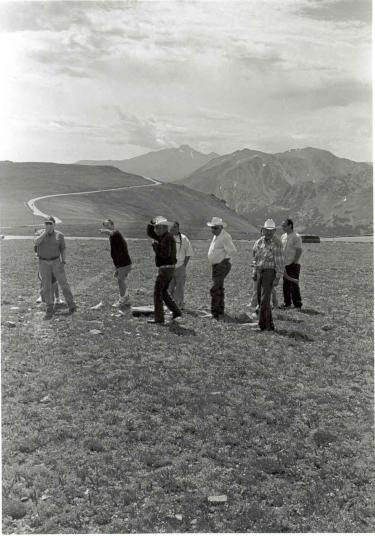Prospective Students

The CU Department of Linguistics has a strong commitment to inclusive excellence at both the graduate and undergraduate levels. Students are offered foundational coursework and research opportunities in a wide range of areas—including syntactic theory, sociocultural and interactional linguistics, computational and psycholinguistics, phonetics/phonology and language documentation—ensuring that they can gain both versatility and expertise in an array of subfields.
Prospective graduate students can learn more about our application requirements and apply here.
The Department offers the following programs:
- PhD in Linguistics
- MA in Linguistics
- Professional MS in Computational Linguistics, Analytics, Search and Informatics (CLASIC)
- BA in Linguistics
- Undergraduate Minor in Linguistics
- Undergraduate TESOL Minor
There are currently about 160 students taking a Major or Minor in Linguistics, and about 45 students enrolled in the MA and PhD programs. The small scale of the Department’s programs ensures close peer relationships and extensive interaction with faculty members, all of whom actively engage students in their research.
The educational mission of the Linguistics department, at both the undergraduate and graduate levels, is to provide students with insight into the fundamental design features of language—its sound patterns, its word- and sentence formation devices, its semantic structure—and to create awareness of language varieties: the diversity of human languages, the role of language as an index of social identity and the ontogenetic and historical development of language.
Students and faculty in our department believe that language and social justice are linked in a variety of ways. As a student and scholar of linguistics you can explore those links, and use the tools of our field to address critical problems and social inequities. Undergraduate students can do community-based learning through the Literacy Practicum and examine the ties between language and social identity through the Sociocultural, Anthropological and Interactional Linguistics (SAIL) major track. Graduate students earning an interdisciplinary certificate in Culture, Language, and Social Practice (CLASP) likewise have the opportunity to do in-depth research across areas like linguistic cognition, semantics, corpus linguistics, language documentation, sociolinguistics, interactional linguistics and linguistic anthropology, and elucidate the interface between language and ideology and the linguistic construction of social categories like gender, sexuality, race and ethnicity. Students can use these frameworks to target policy-critical aspects of human language practice, including literacy, bilingualism, second language acquisition, clinical practice, legal codes and language endangerment/revitalization.
The Linguistics department offers a diverse, inclusive high-energy intellectual community in which learning is facilitated by close interactions with peers and professors, outstanding research facilities, lively classroom discussions and exposure to the work of eminent thinkers in lectures and colloquia hosted regularly on campus.


